
Things have really picked up this month, prompting serious decisions about what I would realistically have time to focus on. At the same time, the race is now on to listen to any major releases I missed or put off all year in preparation for year-end lists. Yes, it’s already that time! In the usual way of things, the longest year of our collective lives is also careening past us, the unforgivable march of time continuing on its way. Below are a few of September’s highs and lows to enjoy in its wake.
 BBHF: BBHF1 -Nankasuru Seinen-
BBHF: BBHF1 -Nankasuru Seinen-
(2020.09.02)
It’s always with more hope than faith whenever a group makes the best debut list of the year, as BBHF would have last year, if it hadn’t turned out they were just masquerading under a new name. Many of the groups won’t amount to much, or like so many K-pop groups, sputter out or disappear. In many cases, the only thing left behind is one great moment orchestrated to prove beginner’s luck. So maybe it’s a good thing BBHF didn’t make the cut, or maybe the name change was just what the band needed, as their “debut” studio album, an ambitious 2-disc concept album chronicling one man’s emotional journey through a labyrinth of history and emotion set to a wave of poppy 80’s synth rock, proves. “Sooner or later, everything changes / I’m not happy at all / For better or for worse, this country is falling into a depression” they lament in “1988,” folding the twin tragedies of a burst bubble and a broken heart into an excuse to get wasted. “Let’s drink till we’re sick, of love itself,” they urge, as the synths swell and the titular character high tails it in a bid to escape depression and responsibility as if a physical entity, like so many Don Drapers before him. “Carrying all the burden in the back I will go south / I will go south, to survive.” It’s not the helpful message we need, perhaps one of the reasons the album was pushed back from its original May release date, but it’s honest, and refreshing, a J-rock band refusing to hide behind dour epithets without any genuine emotional anchor behind them. “Apps that I merely touched once and don’t use / I deleted them all, that is the pleasure of getting rid of things,” the opening track opines; one only wishes it was possible to shake off everything as easily.
 Harry Gregson-Williams: Mulan (Original Motion Picture Soundtrack)
Harry Gregson-Williams: Mulan (Original Motion Picture Soundtrack)
(2020.09.04)
The story of getting Mulan released to the public is almost as epic as the film’s story line, a journey that promises to get topped only by Wonder Woman 1984 or No Time to Die‘s own struggle to hit the silver screen. Gregson-Williams battled his own struggle in providing the musical backdrop, standing in the shadow of legend Jerry Goldsmith, and reckoning with one of the most iconic songs in Christina Aguilera’s discography. Luckily, he neither kowtows to nor completely eschews the original. If we’ve had to wait an extra six months to see the film, imagine how G-W, who began work for the film years before its release, felt! Luckily, the extra time paid off, with this score every bit as robust as the plot line and titular character requires: along with the usual soaring strings, there’s plenty of time-period appropriate instruments from the erhu, to woodwinds. The whole thing is capped off by the original theme, sung by returning vocalist Aguilera, who belts out “Loyal Brave and True,” with all of the sincerity, if not skill, as her original work on “Reflection.” What this soundtrack didn’t need was a repeat of “Reflection,” with the new vocals a mere memory of what the singer was capable of delivering twenty years ago, when she was still ambitious enough to put the work required into making it sound so easy. This score isn’t re-writing the Disney playbook, but it’s one of the few I was genuinely looking forward to this year, and it has delivered in ways the film, based on critical reviews, hasn’t.
 TAEMIN: NEVER GONNA DANCE AGAIN: ACT 1
TAEMIN: NEVER GONNA DANCE AGAIN: ACT 1
(2020.09.07)
TAEMIN is one of the closest people we have to The Great Pop Star, something on a par with the type of megalomania we had in the 80s and early 90s, a Michael Jackson or Madonna, a Solitary Figure with an otherworldly sense of talent, charm, and charisma. All of these traits are on display in his newest video for “Criminal,” including the hardly-human way he moves his body and the uncanny knack he has for looking through the camera straight at the heart of the viewer on the other side. It’s important, but easy, to look past all the shiny surfaces, CGI, and loose fabrics TAEMIN is always draped in, because there is never a moment he doesn’t emanate straight out of it. Like his predecessors before him, he’s seemingly more comfortable in front of the camera than behind, a man who comes alive in the pageantry of performance, and not a moment before. The rest of the mini-album serves its purpose well. TAEMIN’s sound is down pat now, a hook-based, sinister pop infused with tantalizing mystery, like the foreboding “Strangers” and ethereal “Clockwork.” It’s hard to be upset that his team rarely thinks outside of this box when he excels so well inside of it — a TAEMIN playing in his own shadowy sandbox instead of the bright ones his SM peers are often found running amok in is part of what preserves his iconic imagery. I’m not looking forward to his two-year absence to serve his time in the military, and thinking of SHINee without him helps little with the looming void. I’m glad he’s leaving us a few more tokens, and between this and his duties in SuperM, I’m sure the physical requirements of training will seem relatively familiar to the work SM has him put in day in and day out.
 YooA: Bon Voyage
YooA: Bon Voyage
(2020.09.07)
There have been a number of girl-group members with less than solo-worthy chops getting their time in the spotlight, so it’s nice to see one come up that doesn’t deserve to go straight to the discard pile. YooA, from OH MY GIRL, has released her debut solo EP, Bon Voyage, and it’s giving off all the I ♡ Natural meets Shakira vibes. Unfortunately, the title track is the only one to take some risks with the quotidien K-pop sound, leaving the rest of the EP, especially tracks like “Nareul Chajaseo (Far)” and “Jagagmong (Abracadabra)” to fill in the blanks. Overall, the collection is indecisive, a box of pretty, but mismatched buttons that’s easy to chalk up to lack of direction, but as long as we’re not in Hyoyeon, or insipid, one-off ballad territory, I’ll take any of these I can get. In any other month, one not so jam-packed with top tier releases, this would have been easier to appreciate — YooA might not be a superstar, but mostly she just got unlucky.
 BABYMETAL: LEGEND – METAL GALAXY (METAL GALAXY WORLD TOUR IN JAPAN EXTRA SHOW) DAY 1 & 2
BABYMETAL: LEGEND – METAL GALAXY (METAL GALAXY WORLD TOUR IN JAPAN EXTRA SHOW) DAY 1 & 2
(2020.09.09)
Live albums rarely get much appreciation, and BABYMETAL’s latest illustrates why. As a live group, they are pretty great, making use of their strongest assets to cover for places they might be more deficient. They’re idols, but a lot of their fans are metal heads, so many of the usual tricks are tweaked, with video screens promoting the band’s Fox God myth, pyrotechnics over lasers, minimal costume changes, some goth-y props, etc. Lip-syncing still helps in a pinch here and there, especially almost all of MOA and YUI-METAL’S “vocals,” while the band, central to the sound but not the marketing, remain wailing away at their instruments in shadow, with the focus staying on the three (now two) stars of the show. It’s all a lot of fun, and the band clearly enjoys the performance realm more than the studio one judging by the sheer number of live albums and videos that have been released over the course of this group’s 3-album existence. The problem is that rarely does their live music warrant so much attention — like most of it, these two albums are nearly note for note the studio versions with an audience piped in. Unless there are some crazy innovative, off-the-cuff solos, or new arrangements, albums like these, especially when they are unnecessarily spread across two separate releases, are blatant cash grabs of the worst kind. While “money-makers” is how most producers like business-minded Kobametal have always viewed idol groups, I’m not really sure how much longer fans will put up with a stagnated mythology, poor communication, and such obvious, and constant, recycling.
 Ava Max: Heaven & Hell
Ava Max: Heaven & Hell
(2020.09.18)
Going by initial buzz alone, you would think Ava Max wasn’t anything but a deliberate Lady Gaga clone. However, one thing was always clear during the drawn out string of singles leading up to her debut album Heaven & Hell: Ava Max has neither the quirky magnetism, nor the endearing desperation of Gaga’s early singles. “Just Dance” and “LoveGame,” were built on muscular hooks, their choruses as easily mutable through the expensive sound systems of clubs as tinny earbuds, the notes as hummable, and memorable, as a nursery rhyme. I barely registered any of Ava Max’s songs after the first listen. Luckily, her music works better in the album format, where the basic Euro-pop foundations lend a steady, sturdy purpose to an extended run of music, a stepping stone path of a track list that wraps up an almost 3-year block of fun, but indistinguishable singles. It’s not the best representation of what a major label like Atlantic can offer, but there’s raw material within Ava Max, one that hasn’t yet been tapped by truly innovative pop, the kind that gives songs an instantly recognizable personality. I would love to see what Max with a top-tier producer like Justin Tranter could come up with, though I worry that three years of little growth bodes ill for a journey to the next level.

 Arashi: “Whenever You Call”
Arashi: “Whenever You Call”
(2020.09.18)
It’s a shame that Arashi have reached a genuinely interesting stage of their career moments before calling it quits. Everything from a relatively robust Internet presence, to a Netflix documentary, to experimenting with popular social media platforms like TikTok that utilize their strongest appeal (personality), Johnny’s has finally allowed this group the space to grow, as the last year before hiatus, and what was sure to be a spectacular crowning performance at the 2020 Olympics went up in flames, comes to a close. This single, written by Bruno Mars and produced by D’mile is just another curve ball from the group this year. Technically, Mars’s name does not hold the same weight it would have five years or so ago, but his skill hasn’t waned in the four years since he hit a peak with 24K Magic (both the song and album). “Whenever You Call“‘s mid-tempo pace does a stellar job of covering all the group’s worst weaknesses, including some serviceable but awkward pronunciation (this doesn’t bother me, but it’s obvious most of the members are struggling a bit), and the video’s robust choreography that doesn’t quite match the laid back tone of the song (this routine has none of the chill that is a hallmark of Mars’ personality — even when he’s on his knees, he’s always in charge). Otherwise, this simple number is perfect for Arashi: bland enough to fit neatly into the group’s discography, but interesting enough to add a bit of flavor and genuine pathos to a long list of stuffy love songs. It’s no coincidence that Arashi is finally taking fun, sometimes lopsided, risks knowing that they have nothing left to lose, and it really makes one wonder what the group could have been if they had cared enough to think outside the very rigid confines of the Johnny’s formula ten or fifteen years ago instead. Of course, I have liked them just fine for the last few years, but imagine!
 Movements: No Good Left to Give
Movements: No Good Left to Give
(2020.09.18)
I feel a little guilty admitting that I think that Feel Something is one of the greatest debut albums of all time: the lead singer had barely reached legal drinking-age when the band put out one of the most honest and sincere depictions of depression set to audio. Does the album surpass its years to express a mature, wiser-than-its years clarity upon the subject? No, and all the better for it. The very heart-on-its-sleeve, sometimes angry, sometimes okay see-saw is the reason it works, a collection of haphazard emotional turbulence that only the young can, heart whole, deliver un-ironically. The dedicated post-hardcore touches only added to its mystifying success. Three years after its release, it’s still one of the CDs that sees the most re-play on my morning commutes. So with some apprehension, I queued up their follow-up album No Good Left to Give, already wincing at the train wreck of an album jacket. Luckily their sophomore album returns to the same trademark atmospherics of Feel Something. The genre has remained the same, but the execution feels more evolved and fleshed out, with a bit more specificity in its storytelling (“Seneca“) that lends songs a high relatability factor, and an overall less at-the-precipice than already-over-the-cliff commitment on the production side. The album can be a bit unforgiving in its relentless drive to play up the half-empty mindset when the music itself already does so much of the heavy lifting, with the lyrics an overkill at times and the spoken-wore segments still a distraction (also, note for note the same melody as the ones on Feel Something so it sounds — not in a good, come-full-circle way — like the exact same song), but this is still a world I can see myself spending as much time in as its predecessor, an aural space perfect for the bleak landscape we’ve all found ourselves in this year.

 Kylie Minogue: “Magic”
Kylie Minogue: “Magic”
(2020.09.24)
When Kylie announced the title of her new album, Disco, and revealed the cover art, I was hardly imagining the sound of “Say Something,” the first single released. But this is more like it! “Magic” perfectly captures the tone of “grown-up disco” that Minogue hinted at almost a year ago. With good reason, it lacks the serious resonance of Jessie Ware’s disco odyssey, reflecting, instead, the poppy fun we’ve come to expect from Minogue. It might not be so much grown-up, as an attempt by a grown up to capture the same nighttime feeling you only get at the club in your 20s, but it says a lot more than its predecessor. It also has a better, carefully social-distanced music video — okay, there’s only like six people total in the club and an invisible glass barrier surrounds our star, but we’re in the club again! Dancing! Celebrating! You can be nostalgic for 1979 and 2019!

 LOONA // [x x]
LOONA // [x x]
 BAND-MAID // BAND-MAIKO
BAND-MAID // BAND-MAIKO Nao Toyama // Gunjou INFINITY
Nao Toyama // Gunjou INFINITY The Dance for Philosophy // Excelsior
The Dance for Philosophy // Excelsior TWICE // Feel Special
TWICE // Feel Special BABYMETAL // METAL GALAXY
BABYMETAL // METAL GALAXY TAEYEON // Purpose
TAEYEON // Purpose Hey! Say! JUMP // PARADE
Hey! Say! JUMP // PARADE Cosmic Girls (WJSN) // As You Wish
Cosmic Girls (WJSN) // As You Wish
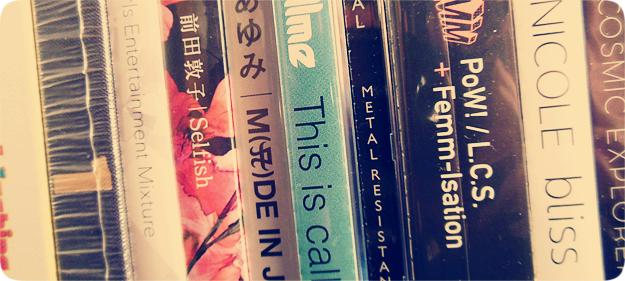
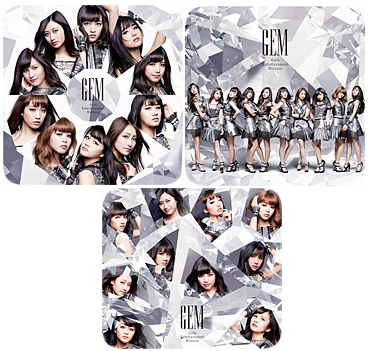 GEM: Girls Entertainment Mixture: I’m a sucker for Avex’s dance-groups, and GEM fits in nicely where Fairies went on some kind of unspoken hiatus (only one single release the entire year) TOKYO GIRLS’ STYLE is
GEM: Girls Entertainment Mixture: I’m a sucker for Avex’s dance-groups, and GEM fits in nicely where Fairies went on some kind of unspoken hiatus (only one single release the entire year) TOKYO GIRLS’ STYLE is  Sumire Uesaka: 20 Seiki no Gyakushuu: Definitely the winner in this year’s bat-shit crazy, hard rock album of the year category. As usual, we’re dealing with a hyper-kawaii female idol with an angle (she loves Russia and Russian things?), contrasting those high-pitched, delicate vocals against music the likes of which would find a comfortable home on a Metallica album. You either love it, hate it, or are slowly getting sick of the sheer number of albums that come out in Japan like this in hopes of both appealing to otaku and breaking through that niche market. Still, Uesaka’s stab at it is quite fun, a 22-track almost-rock opera of Russian space-age miscellany.
Sumire Uesaka: 20 Seiki no Gyakushuu: Definitely the winner in this year’s bat-shit crazy, hard rock album of the year category. As usual, we’re dealing with a hyper-kawaii female idol with an angle (she loves Russia and Russian things?), contrasting those high-pitched, delicate vocals against music the likes of which would find a comfortable home on a Metallica album. You either love it, hate it, or are slowly getting sick of the sheer number of albums that come out in Japan like this in hopes of both appealing to otaku and breaking through that niche market. Still, Uesaka’s stab at it is quite fun, a 22-track almost-rock opera of Russian space-age miscellany.  Arashi: Are You Happy?: 2016 was the year J-pop boy bands in general, and Arashi in particular, finally managed to chip away at my icy, stone-cold heart. Only a time machine could correct the mistake of keeping Japonism
Arashi: Are You Happy?: 2016 was the year J-pop boy bands in general, and Arashi in particular, finally managed to chip away at my icy, stone-cold heart. Only a time machine could correct the mistake of keeping Japonism  BABYMETAL: METAL RESISTANCE: There’s a lot to process here in my top ten East Asian pop albums list, namely the inclusions of groups and styles of J-pop that I have been historically averse to (idols, I mean idols). But with the challenge to myself to be more open to embracing the ubiquitous new styles of J-pop, comes the freedom to enjoy even the most media-saturated groups that top the Oricon chart to the chagrin of “true” music fans. 2015 saw no lack of effort in my
BABYMETAL: METAL RESISTANCE: There’s a lot to process here in my top ten East Asian pop albums list, namely the inclusions of groups and styles of J-pop that I have been historically averse to (idols, I mean idols). But with the challenge to myself to be more open to embracing the ubiquitous new styles of J-pop, comes the freedom to enjoy even the most media-saturated groups that top the Oricon chart to the chagrin of “true” music fans. 2015 saw no lack of effort in my  Tomomi Itano: Get Ready: And quite possibly, my favorite album covers of the year, as well. I was a late-comer to Itano’s brand of pop, unsure and slightly uncomfortable with what angle they were getting at with 2014’s SxWxAxG. Get Ready is a bit too mixed-bag to be a cohesive original album, with teen house-party dance (“COME PARTY!”) mixed with some genuinely interesting creep-factor pop (“Hide & Seek”) and hard-hitting EDM (“You Should Try HARDer,” of course), but the parts that don’t make up any kind of logical whole are fun, if a bit questionable. Perhaps if they stopped pushing Itano in four different directions and gave her sound and image more focus, with the capability of filling in some kind of needed gap in J-pop, we’d get something that resembles a bit more of the solo singer she is capable of becoming. Listen: “
Tomomi Itano: Get Ready: And quite possibly, my favorite album covers of the year, as well. I was a late-comer to Itano’s brand of pop, unsure and slightly uncomfortable with what angle they were getting at with 2014’s SxWxAxG. Get Ready is a bit too mixed-bag to be a cohesive original album, with teen house-party dance (“COME PARTY!”) mixed with some genuinely interesting creep-factor pop (“Hide & Seek”) and hard-hitting EDM (“You Should Try HARDer,” of course), but the parts that don’t make up any kind of logical whole are fun, if a bit questionable. Perhaps if they stopped pushing Itano in four different directions and gave her sound and image more focus, with the capability of filling in some kind of needed gap in J-pop, we’d get something that resembles a bit more of the solo singer she is capable of becoming. Listen: “ AKB48 Alumnae 2016 Debuts: Misaki Iwasa: Misaki Meguri ~Dai 1-sho~/Minami Takahashi: Aishite mo Ii Desu ka?/Atsuko Maeda: Selfish: Three former AKB48 members released debut albums this year, with Maeda and Takahashi cornering the pop/rock market and Iwasa making inroads with a somewhat poppier, mainstream-friendly enka in the vein of a Yuko Nakazawa. They’re all fun albums without anything in particular to say, though the lead track off of Selfish definitely offers the best of the three, with the album coming in as a respectable mirror image of AKB48’s 2015 album Koko ga Rhodes da, Koko de Tobe! And I rather like Iwasa’s album, even though I’m not very interested in enka, and even though I think, in terms of what the genre demands, she has a long way to go to produce the necessary vocals it requires. Still, since this list is basically turning into a run-down of J-pop at its most J-pop, you can choose any one of these three for this spot while discarding the others and I’d be okay with whichever decision you’d make. They’re really that interchangeable. Listen: “
AKB48 Alumnae 2016 Debuts: Misaki Iwasa: Misaki Meguri ~Dai 1-sho~/Minami Takahashi: Aishite mo Ii Desu ka?/Atsuko Maeda: Selfish: Three former AKB48 members released debut albums this year, with Maeda and Takahashi cornering the pop/rock market and Iwasa making inroads with a somewhat poppier, mainstream-friendly enka in the vein of a Yuko Nakazawa. They’re all fun albums without anything in particular to say, though the lead track off of Selfish definitely offers the best of the three, with the album coming in as a respectable mirror image of AKB48’s 2015 album Koko ga Rhodes da, Koko de Tobe! And I rather like Iwasa’s album, even though I’m not very interested in enka, and even though I think, in terms of what the genre demands, she has a long way to go to produce the necessary vocals it requires. Still, since this list is basically turning into a run-down of J-pop at its most J-pop, you can choose any one of these three for this spot while discarding the others and I’d be okay with whichever decision you’d make. They’re really that interchangeable. Listen: “ TAEMIN: Press It: SHINee is one of the best boy bands in East Asia right now: they had an incredible 2015 with Married to the Music, an album that
TAEMIN: Press It: SHINee is one of the best boy bands in East Asia right now: they had an incredible 2015 with Married to the Music, an album that  callme: This is callme: You can argue that Perfume’s COSMIC EXPLORER had better singles (“
callme: This is callme: You can argue that Perfume’s COSMIC EXPLORER had better singles (“ G-Friend: LOL: LOL was chosen, in part, for all the similar-sounding K-pop albums it represents then on the strength of just itself. Alone, it’s a great album, but is it really any better than all of the other girl groups re-creating SNSD’s debut? Not really. Fortunately, SNSD had one of the greatest K-pop debuts years of all time, and their most ardent imitators,
G-Friend: LOL: LOL was chosen, in part, for all the similar-sounding K-pop albums it represents then on the strength of just itself. Alone, it’s a great album, but is it really any better than all of the other girl groups re-creating SNSD’s debut? Not really. Fortunately, SNSD had one of the greatest K-pop debuts years of all time, and their most ardent imitators,  Nicole: bliss: Despite the number of great K-pop EPs and mini-albums to come out during the course of the year, their Japanese-release equivalents can and do often surpass their Korean offerings. AFTERSCHOOL was one such group, and now ex-KARA vocalist NICOLE can be added to the list, with her Japanese-debut album bliss, a quaint, mellow take on the most common-denominator pop known to the genre. Despite this critique, it’s nowhere near as tedious as it might sound: there is still ample space to add hints of something special on an album that is the very median of pop music in the 2010s, and NICOLE’s producers make the most of this stab at inoffensive, disco-lite, average groove, the very opposite of the lengths K-pop will sometimes go to churn out louder-than-the-last trendy hit singles. Both have their place on my list. Listen: “
Nicole: bliss: Despite the number of great K-pop EPs and mini-albums to come out during the course of the year, their Japanese-release equivalents can and do often surpass their Korean offerings. AFTERSCHOOL was one such group, and now ex-KARA vocalist NICOLE can be added to the list, with her Japanese-debut album bliss, a quaint, mellow take on the most common-denominator pop known to the genre. Despite this critique, it’s nowhere near as tedious as it might sound: there is still ample space to add hints of something special on an album that is the very median of pop music in the 2010s, and NICOLE’s producers make the most of this stab at inoffensive, disco-lite, average groove, the very opposite of the lengths K-pop will sometimes go to churn out louder-than-the-last trendy hit singles. Both have their place on my list. Listen: “ Mentions:
Mentions:



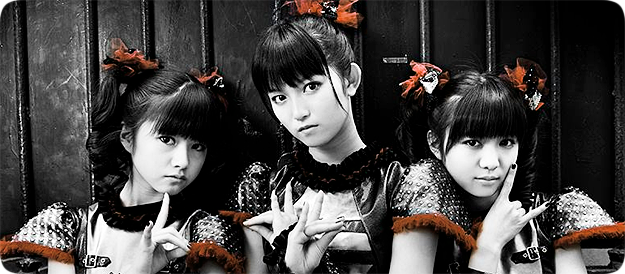
 That last point is a stretch, and none of the artists briefly profiled could be considered to have gained “mainstream” success (Rappers Novelist and Kodak Black, piano prodigy Joey Alexander, popster Låpsley, etc.), but the New Yorker wouldn’t be the New Yorker if it didn’t purport to being on the absolute up-and-up. As in TIME‘s special Fall 2001 issue, which featured Hikaru Utada, (notably, she was working on her American debut with Foxy Brown and the Neptunes and planning to retire very young, around 28, probably to become a neuroscientist), articles like these tend to be peak Western exposure for said artists, rather than the beginning of a phenomenon, though BABYMETAL does get relatively considerable space. Writes Trammell,
That last point is a stretch, and none of the artists briefly profiled could be considered to have gained “mainstream” success (Rappers Novelist and Kodak Black, piano prodigy Joey Alexander, popster Låpsley, etc.), but the New Yorker wouldn’t be the New Yorker if it didn’t purport to being on the absolute up-and-up. As in TIME‘s special Fall 2001 issue, which featured Hikaru Utada, (notably, she was working on her American debut with Foxy Brown and the Neptunes and planning to retire very young, around 28, probably to become a neuroscientist), articles like these tend to be peak Western exposure for said artists, rather than the beginning of a phenomenon, though BABYMETAL does get relatively considerable space. Writes Trammell,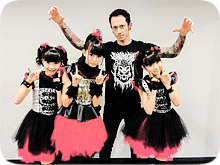 In many ways this is a sign of the outrageous gender binaries that comprise the marketing and distribution of Japanese idols; for purposes of the music itself, it also reinforces the notion that genres that comprise huge male audiences (hard rock, metal) can be deemed authentic and worthy of critical attention, while those that women enjoy are considered fluff that no one would ever take seriously. Under that idea, it’s hardly surprising that a group like BABYMETAL could make it in the circles of certain American subcultures, and less so that articles in the Western media feel the need to justify their interest in the group by constantly reminding readers that their material was written by veterans of the metal genre (Nobuki Narasaki, Herman Li, Sam Totman, Takeshi Ueda, etc.), or that the girls themselves are influenced, or appreciated by,
In many ways this is a sign of the outrageous gender binaries that comprise the marketing and distribution of Japanese idols; for purposes of the music itself, it also reinforces the notion that genres that comprise huge male audiences (hard rock, metal) can be deemed authentic and worthy of critical attention, while those that women enjoy are considered fluff that no one would ever take seriously. Under that idea, it’s hardly surprising that a group like BABYMETAL could make it in the circles of certain American subcultures, and less so that articles in the Western media feel the need to justify their interest in the group by constantly reminding readers that their material was written by veterans of the metal genre (Nobuki Narasaki, Herman Li, Sam Totman, Takeshi Ueda, etc.), or that the girls themselves are influenced, or appreciated by, 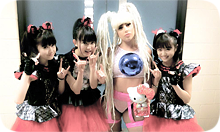 While Marty Friedman believed that Japanese pop music would only reach an audience outside Japan “with luck” and “timing,” and other factors that couldn’t be planned, BABYMETAL, has been a slow, methodical climb to relevance, not least of which included shows in Paris, New York, and the UK, and opening for Lady Gaga’s ArtRave: The Artpop Ball tour starting back in 2014.
While Marty Friedman believed that Japanese pop music would only reach an audience outside Japan “with luck” and “timing,” and other factors that couldn’t be planned, BABYMETAL, has been a slow, methodical climb to relevance, not least of which included shows in Paris, New York, and the UK, and opening for Lady Gaga’s ArtRave: The Artpop Ball tour starting back in 2014.  That being said, in rare cases the music can transcend context, as BABYMETAL’s fantastic new album, METAL RESISTANCE, does. There are some truly epic and astounding risks the album takes and pulls off, particularly with lead tracks “
That being said, in rare cases the music can transcend context, as BABYMETAL’s fantastic new album, METAL RESISTANCE, does. There are some truly epic and astounding risks the album takes and pulls off, particularly with lead tracks “